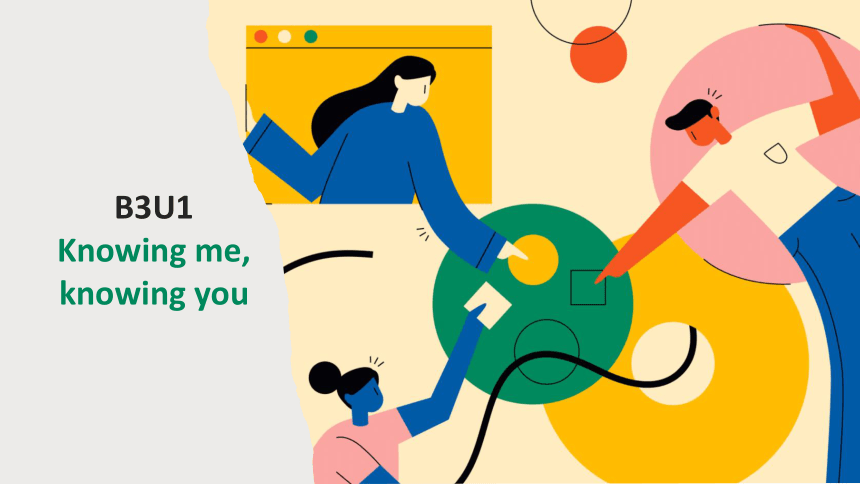(
课件网) B3U1 Knowing me, knowing you Observing What do these sentences have in common Disappointed by his behavior, I said all this to my best friend. Embarrassed and ashamed, I can’t concentrate on anything. Treated this way, you’re sure to feel hurt… Approached in this way, your friendship will soon be repaired. Filled with anger, you tend to say whatever comes to your mind. Why do we use –ed rather than –ing in these sentences -ed as adverbial (过去分词做状语) 1. 过去分词做状语,通常表示被动或完成。可以做各类状语,也可改写为相应的从句或并列句。 Seen from the hill, the village looks more beautiful. Satisfied with what he did, the teacher praised him in class. Given more time and support, we could have done it better. Attacked many times, the residents in London didn’t give in. Followed by his wolf dog, the hunter walked slowly in the forest. He failed in the competition, blamed by his companions. 时间 原因 条件 让步 方式/伴随 结果 -ed as adverbial (过去分词做状语) 2. 过去分词还可以做说明性状语,交代谓语动作发生的背景。 Founded in 1900, the university has a history of more than 100 years. Born in a rural family, she began to help her family at an early age. 3.有些过去分词(短语)已形容词化,常用于系表结构,作状语时表状态。e.g, seated, determined, devoted to, involved in, dressed in, tired of, lost/absorbed/buried in, … Determined to go to a top university, he works hard on his study every day. Tired of the city life, she desired to live in peace in the country. -ed as adverbial (过去分词做状语) 4. 过去分词做状语,前面可加when, though, although, as if, as though, if, unless, until, once等连词,也可看作是状语从句的省略。 _____ asked to sing a song, the girl jumped onto the stage. _____ invited to speak, you should remain silent at the meeting. _____ heated, the material can be made into any shape. He will come, _____ invited. When Unless Once if 辨析 1:done, being done, having being done做状语 Founded in 1900, the university has a history of more than 100 years. Being redecorated right now, the music hall is not available. Having been well tended for half a year, my grandma became better. done表被动或完成 being done表被动和进行 having been done强调被动和先于谓语动作发生/因果关系 辨析2:to do, doing, done做状语 I woke up in the morning to find the outside world changed completely. To improve the situation, we call for immediate measures. He is sad to hear the bad news. done表被动或完成 doing表主动和进行 to do表原因、目的、(意料之外的)结果 注意:过去分词做状语,其逻辑主语必须是句子主语。 修改病句:Finished their homework, the children went out to play. The children finished their homework and went out to play. (并列句) After the children finished their homework, they went out to play.(状语从句) After finishing their homework, the children went out to play. (介词短语作状语) Having finished their homework, the children went out to play football. (现在分词做状语) With their homework finis ... ...

